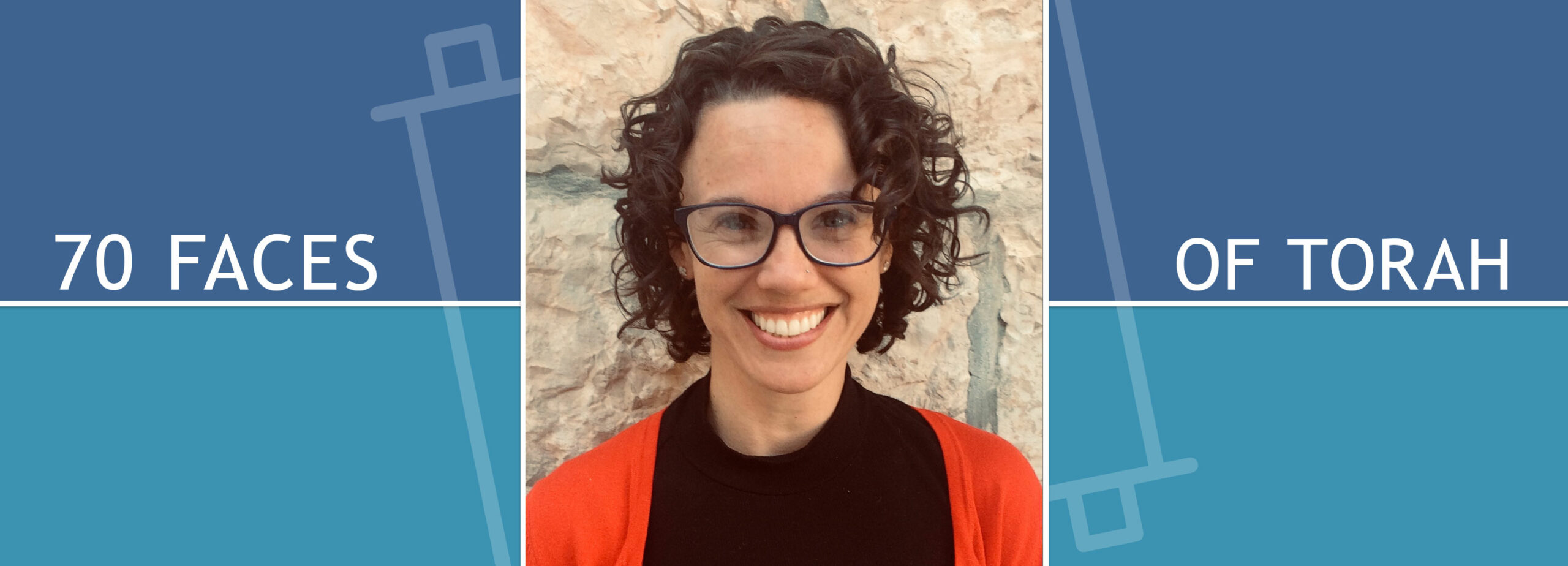Genesis “Go Forth” — Go to Yourself, for Yourself, and Beyond Yourself!

Parashat Lech Lecha (Genesis 12:1-17:27)
This week’s Torah portion begins with God’s great call to Avram — Judaism’s “founding father” — to go forth from his land, from his home, and from his family, to a land that God will show him. God tells Avram that by doing so, he will be both blessed and a blessing (Genesis 12:1-2). Avram responds to this call by embarking on a harrowing journey with his spouse Sarai and their nephew Lot. This trek will reshape his life and the lives of countless others for generations to come.
The opening words of God’s call, “Lekh lekha,” can actually be translated as “Go forth,” “Go to yourself,” or “Go for yourself,” (or, as my 15-year-old self said to my brother at his bar mitzvah, “Go away!”). However one chooses to translate these words, Lekh lekha is all about movement: going inwards or outwards, moving beyond the familiar and comfortable, crossing boundaries and moving into spaces where we can (re)discover our best selves. It is a journey that begins by first pausing to listen and then moving in step with what one hears, thinks, and feels.
This “going forth” into the unknown can be frightening. There are habits, dreams, and connections that may be left behind. It takes courage and support to move away from what is familiar.
Fortunately, we are “hard-wired” for movement. After all, we come into this world by traveling through a dark passage after growing for months in the womb. Once outside, we naturally begin to reach, to crawl, to walk, and then to run. We are designed to “go forth!” As our brains develop we also seek meaning and purpose. Lekh lekha is a call that reconnects us to the natural impulse to develop and grow, implanted in us by God.
Avram ventures into the unknown with a visceral sense of connection to the Source of Life. He recognizes that everyone and everything he will encounter on his voyage issues from this one Source. It is this sense of being held by a secure attachment with the Divine that gives Avram the ability to accept the uncertainty he will experience along the way. Author Joanna Macy writes, “Thank goodness for uncertainty. When we know the future isn’t yet decided, there is room for us to play a role in influencing what happens.” Supported by his relationship to God, Avram is able to embrace uncertainty and to actively participate in the renewal of life.
One of the most powerful aspects of this ancient story is that Lekh lekha is a call to journey for us and for others. As Macy teaches, “In rising to the challenge of playing our best role, we discover something precious that both enriches our lives and adds to the healing of the world.” This is why God promises Avram that he will be “blessed” and a “blessing.” In other words, the work of personal discovery and of liberation go hand in hand.
While Avram serves as a model of faith in one God, it is also important to note that he does not journey alone. His spouse and family travel with him. Together they experience the joys and sorrows of life. We all need trusted traveling companions—family and friends, teachers and students. They cheer us on, provide love and support, and keep us honest to remain committed to becoming our best selves.
Lekh lekha serves as an annual call:
It is time. Go out, to yourself, for yourself, and beyond yourself. You know how to do this. When you are scared or unsure, reconnect with your breath, with God, with those who care about you, and put one foot in front of the other. Remember: you learned to journey long ago, even before you took your first step!
Lekh Lekha reminds us that change is possible. These two simple yet profound words help to activate the inherent impulse within each of us to create a better world for ourselves and for all living beings.
Batya Ellinoy is a student at the Rabbinical School of Hebrew College in Newton Centre, MA.

